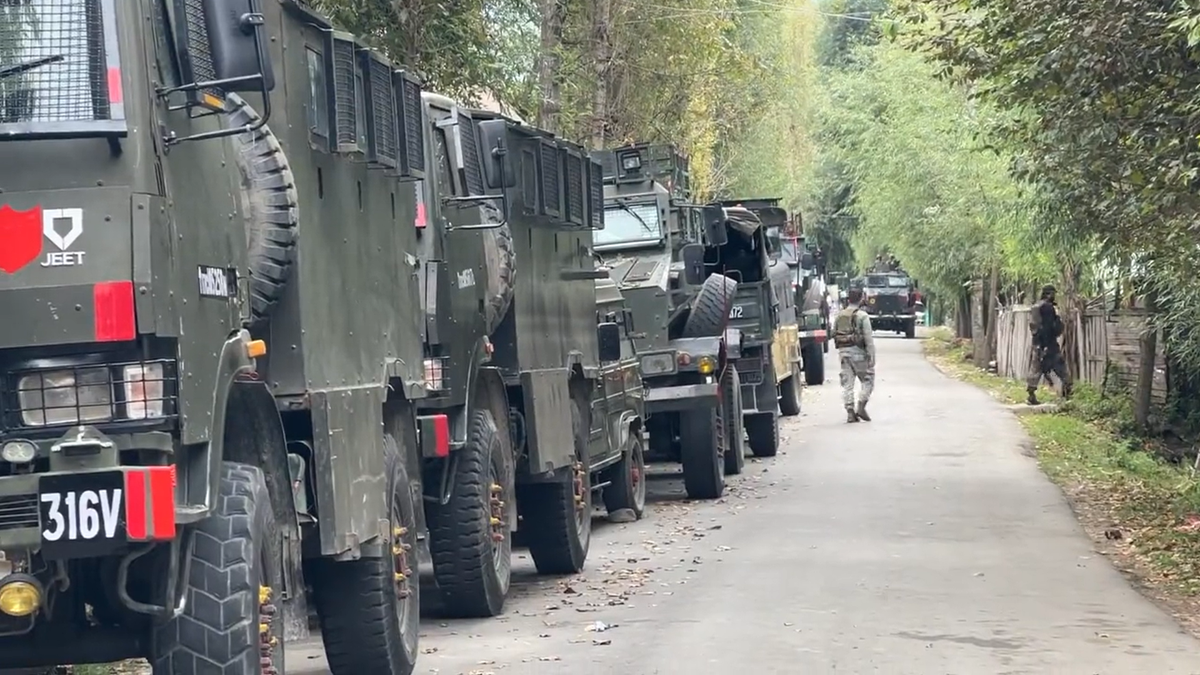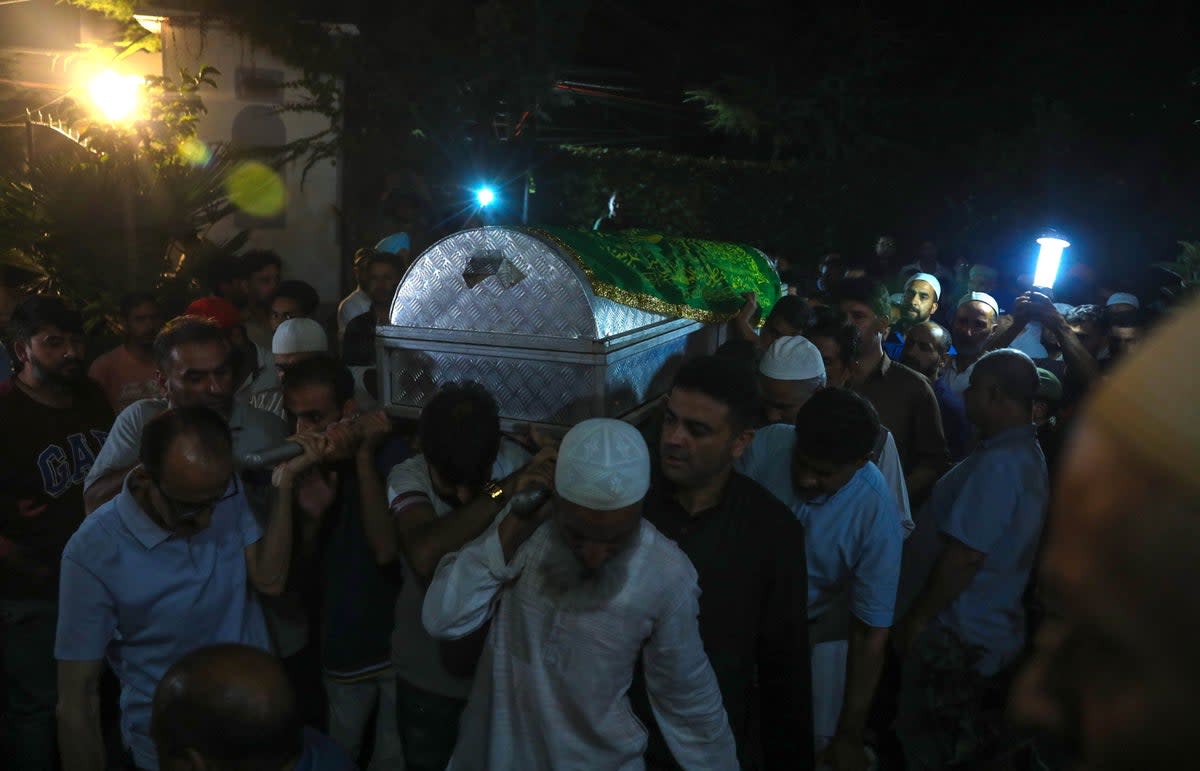India mourns deaths of high-ranking army officers in major Kashmir operation

Hundreds of people in India have gathered to mourn the deaths of four security personnel in an active military operation that stretched into its third day in the restive region of Jammu and Kashmir.
The Indian army launched an anti-insurgency operation on Tuesday night in the Kokernag area of Anantnag district in South Kashmir after saying it had intercepted militants from the Pakistan-based Lashkar-e-Taiba terrorist group.
Kashmir has played host to an active separatist insurgency since the 1990s and while clashes between the military and militants are not uncommon, this operation has become one of the most drawn-out in recent years.
And the seniority of the armed forces members killed during the operation has led to widespread national attention, with tributes paid online and heated debates about the situation in Kashmir playing out on TV stations.
Major Aashish Dhonchak, Colonel Manpreet Singh and Deputy Superintendent of Kashmir police Humayun Bhat have been named as those killed in the gunfire, while it is unclear how many casualties have been suffered by the militants.
An Indian army soldier who was missing since Wednesday was also confirmed dead.
Updates on the operation are being closely followed by the public, with the security forces describing how they have deployed drones to help locate the militants.
Videos from the scene captured by the military showed soldiers using granade launchers to lob explosives into a wooded area in the hills – presumed to be where the militants are hiding out.
One more video shows Jawans targeting terrorist hideout.#Kokernag #KokernagEncounter #Encounter #Gadol #AnantnagAttack pic.twitter.com/DHL6bJJMZ9
— Siddhant Anand (@JournoSiddhant) September 15, 2023
The Kashmir valley is one of the most densely militarised regions in the world, and a flashpoint between India, Pakistan and to a lesser extent China, which all administrate parts of the region and claim others. The Indian government says Kashmir is an integral part of the country and blames Pakistan for fuelling militancy in the region, while many Kashmiris consider it a legitimate struggle for self-determination.
India, which maintains a force of at least 130,000 army soldiers across Jammu and Kashmir in addition to a huge paramilitary presence, now has a huge operation with security forces surrounding the Kokernag area.
Across India, the families of the slain soldiers have been mourning their loved ones. In Aashish Dhonchak’s hometown of Panipat in the northern state of Haryana, media images showed a large crowd of people gathered to pay their respects to the officer.

Dhonchak’s brother-in-law Suresh told NDTV that the officer was recently awarded with a medal and wanted to celebrate it with the family.
Speaking of the soldier’s wife, he said: “I don’t have the courage to face her. I spoke to Aashish after he got the Sena Medal and he told me ‘the country now has fewer enemies’,” he said, referring to a medal given to Indian army soldiers for acts of courage.
VIDEO | Mortal remains of Major Ashish Dhonchak, who lost his life in anti-terror operation in Anantnag, being taken for last rites in Panipat, Haryana. (n/1) pic.twitter.com/hb6j8V3ADL
— Press Trust of India (@PTI_News) September 15, 2023
Similar scenes were witnessed in Punjab state’s Mohali city, where the six-year-old son of Manpreet Singh gave a final salute to his father. A third-generation soldier of the family, Singh is survived by his mother, wife, a two-year-old daughter and a son.
Kashmir police officer Humayun Bhat was the son of a top retired police official, Ghulam Hasan Bhat, who served as the Jammu and Kashmir police’s inspector general.
Bhat died due to heavy blood loss after sustaining a gunshot wound.
“It is a very sad occasion and both the officers – Manpreet (Col Manpreet Singh) and Aashish (Major Aashish Dhonchak) – were from my Regiment. It is a big loss to the regiment and the army,” former Indian Army chief General Ved Prakash Malik told news agency ANI.
